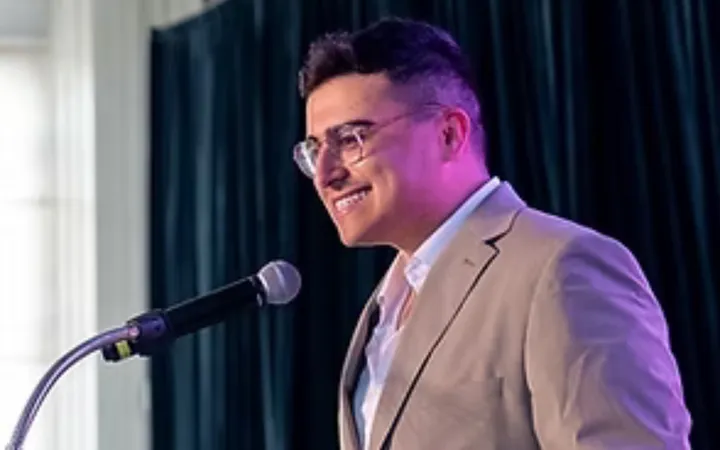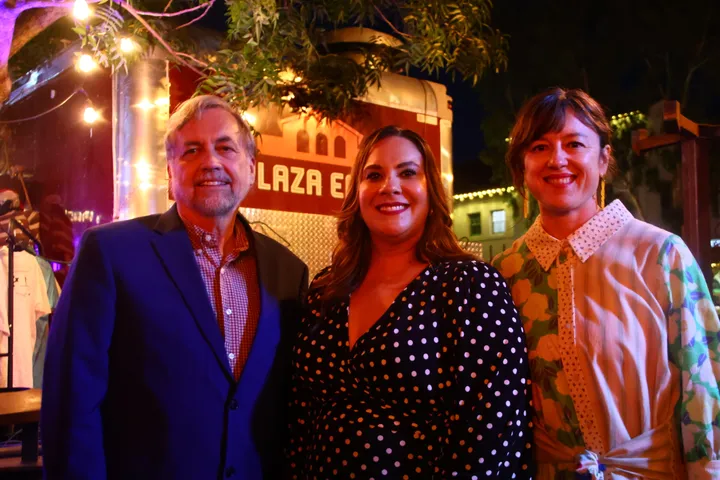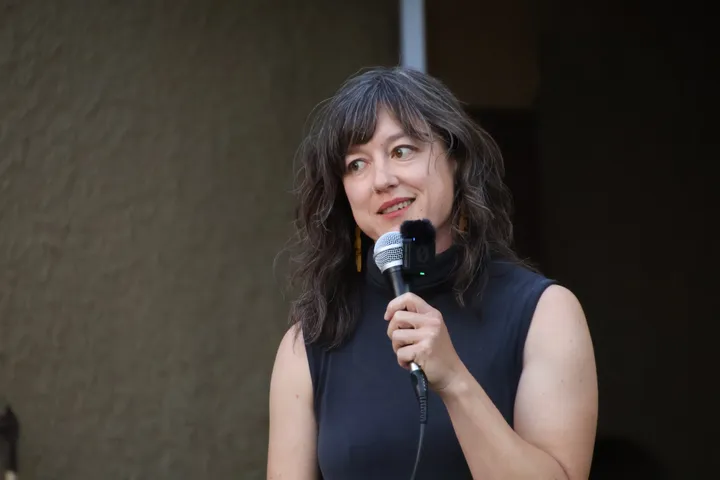Elsner highlights innovation, service in Ward 5 campaign
Chris Elsner, a Peace Corps veteran and University of Arizona graduate, is running for Tucson’s Ward 5 City Council seat, focusing on community engagement, digital democracy, and local infrastructure improvements.
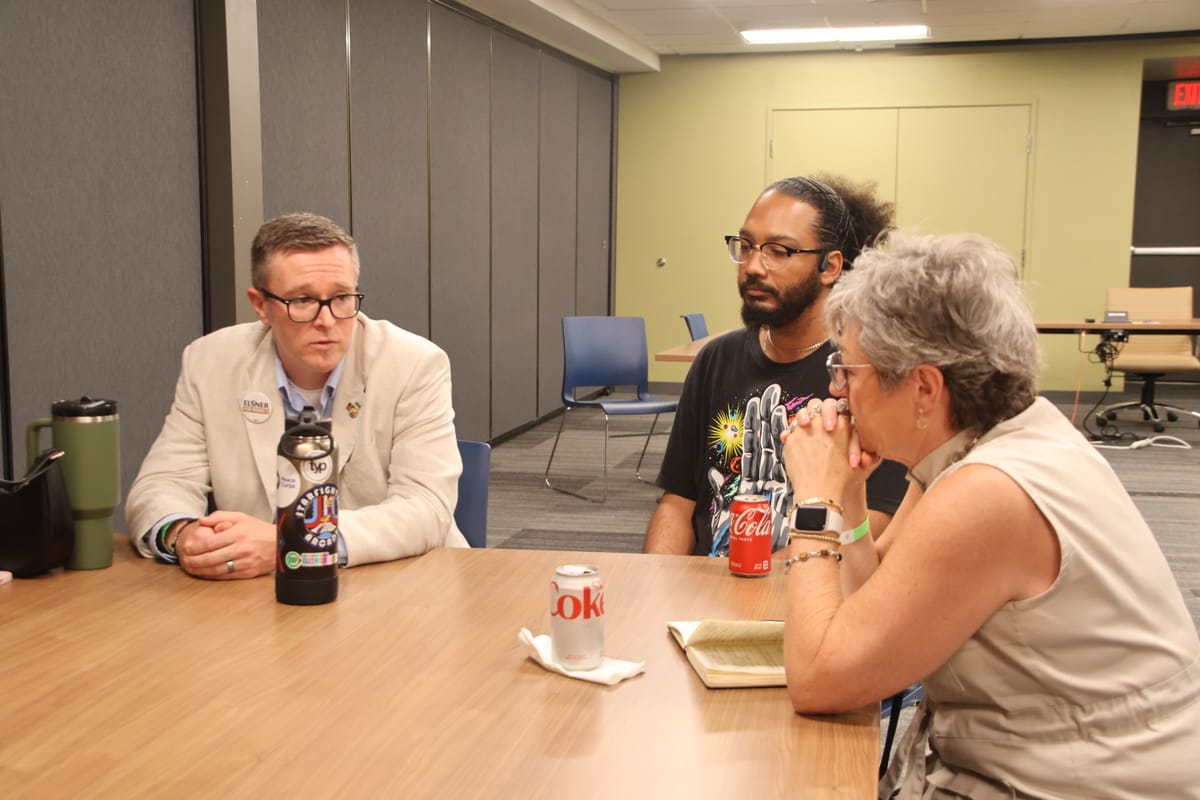
Chris Elsner, a Peace Corps veteran and University of Arizona graduate, is making his first run for public office in Tucson’s Ward 5 City Council race, bringing a blend of global experience, a passion for community engagement and a focus on modernizing local government.
Elsner was born in Pinetop-Lakeside, where he spent his early years before moving to California and later to Chicago, where he earned his undergraduate degree at Northern Illinois University.
After earning his undergraduate degree, he joined the Peace Corps and served in Ukraine as an education volunteer, where he met his wife, Lexie. In 2011, after completing his service, Elsner followed her back to her hometown of Tucson and enrolled at the University of Arizona to earn his master’s degree.
“I think (my background) has given me a lot of perspective and appreciation for different walks of life and where people come from and, you know, the ability to put myself in other people's shoes,” Elsner told Tucson Spotlight.
Elsner was hired by the UA in 2015, serving most recently as Peace Corps Prep Coordinator since 2021. Although he has always been passionate about public service and helping his community, he felt that this year was the right moment to take action.
A Democrat, Elsner is facing two other Democratic challengers in the primary: Selina Barajas and Jesse Lugo. With no Republican on the ballot, the winner of July’s primary will take the seat.
Elsner expressed frustration with the city’s primary election system, which limits initial voting to ward-specific primaries before advancing candidates to a citywide general election. He noted that, in cases like this one, Republican voters are excluded from participating in the primary. He said he prefers ranked-choice or open primary systems, which he believes give more voters a voice and reduce pressure to choose between only two major parties.
“If we can make that change in how we elect officials, using rank choice voting, using open primaries, I think it would change the incentives and it would force politicians to do a better job of listening to their constituents,” he said.
Elsner believes his time as a student and his work with the UA and its diverse student body have provided him with a different perspective than many others.
“Most Americans do not have a college degree, and so I am aware that that sort of skews my perspective and that I need to be really careful and be open to other perspectives for people coming from different walks of life,” he said. “One of the things that I’m very passionate about is making sure that I am listening to people who are different from me and have different perspectives.”
In 2023, 36% of adults over 25 living in Tucson reported having a college degree, less than 1% above the national average, according to MAP AZ Dashboard.
Elsner said many of the students he works with are interested in the Peace Corps, and seeing young people committed to public service and making a positive impact gives him hope for the future. That same sense of service and hope is what he hopes to bring to Ward 5, building community with his constituents and emphasizing face-to-face interactions.
“Really trying to meet people where they're at, I think is the most important thing for city council,” he said. “So, yes, we need to have office hours. Yes, we need to have online options. Yes, we need to continue having public forums and city council meetings and having all those things publicly available. Yes, we need to communicate digitally with people, but maybe we also need to send our constituent services out in the community and knock on doors.”
Elsner also discussed the potential of using digital democracy tools to better inform and engage constituents. He pointed to examples from Taiwan and Ukraine, where digital platforms have been used effectively to connect governments with the public.
The Taiwanese government uses the platforms vTaiwan, Polis and Join to engage with citizens. Before the war began in 2022, the Ukrainian government launched an app called Diia, which, according to CIGI, was designed to digitize all government services and make them accessible to citizens through a single platform.
“Everyone's schedule is so different and having set hours, set times for different things is great, as it is to bring the community together,” Elsner said. “I think that is the ideal, but that doesn't work for everybody, and so we do need to have ways for asynchronous communication, and engagement.”
These ideas about digital democracy are part of Elsner’s Government
Responsiveness Policy platform, which he mentions on his campaign website.
Another one of Elsner’s priorities is building safer streets. He said that when he first moved to Tucson, one of the biggest complaints he heard was how “awful” the roads were. Fourteen years later, the situation has not improved, he said, adding that if he’s elected, he’ll look into new infrastructure and funding solutions.
One funding approach he proposed is called damaged liquidity, which allows contractors to bid on projects with a commitment to complete them by a specified deadline. If the work isn’t finished on time, the contractor would pay a penalty, with the fine going to the city.
Elsner also wants to explore how to make reconstructed roads last longer to reduce the need for constant resurfacing.
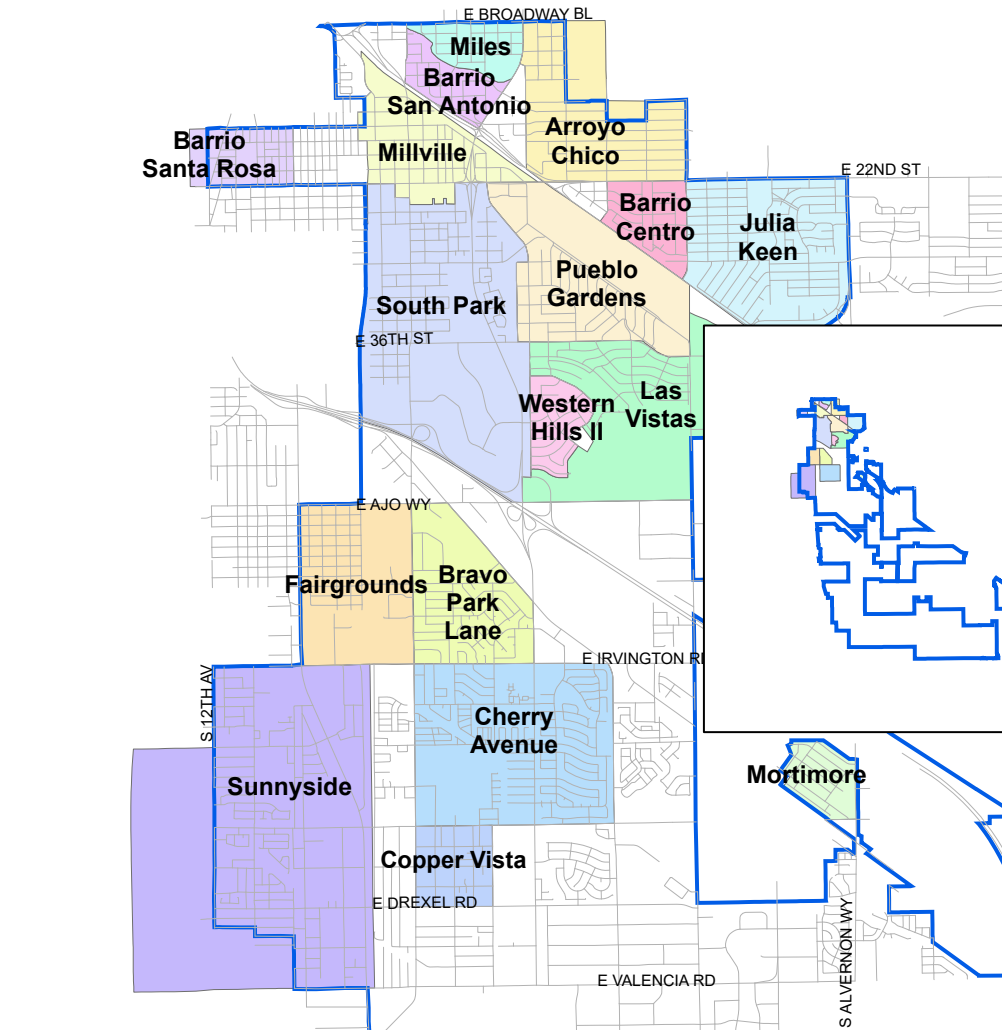
Like many other candidates, housing affordability is also a concern for Elsner.
“There are a lot of like available houses in Tucson, just not many of them are affordable for the people who actually need them,” he said.
He supports solutions like cooperative housing and modernizing zoning regulations to address these issues, pointing to the city of Boston, which rolled out a co-purchasing pilot program. The program allows multiple households—friends or family—to combine their purchasing power to buy multi-family homes, fostering community, affordability and stability.
Elsner sees ideas like this as a starting point, calling them a short-term solution within a much larger effort to address housing challenges.
In terms of the bigger picture, Elsner called for more creativity in homebuilding options, more support for local trade unions, and stronger pipelines to connect young people to those careers.
To address Tucson’s homelessness crisis, Elsner is proposing stop-gap funding programs that help keep people housed as a form of prevention. But he said that because there are so many reasons a person can become homeless, no single solution will end the crisis.
Elsner also proposed eliminating barriers at shelters that make it difficult for people to access support. He noted the need for better tools to address individuals who repeatedly cause disruptions, potentially including stronger interventions.
He stressed the importance of listening to and collaborating with local nonprofits and public health organizations to find more effective solutions.
“It really is a systemic, community-wide problem,” Elsner said. “The city alone can’t solve it alone, the non-profit sector alone can’t solve it and residents deserve to have a response to that problem.”
Voters will have a chance to talk with many of the city council candidates at a July 8 candidate meet-and-greet co-hosted by Tucson Spotlight and Arizona Luminaria. Find details and RSVP here.
Sarah Arellano is a journalism major at the University of Arizona and Tucson Spotlight intern. Contact her at saraharellano@arizona.edu.
Tucson Spotlight is a community-based newsroom that provides paid opportunities for students and rising journalists in Southern Arizona. Please consider supporting our work with a tax-deductible donation.

